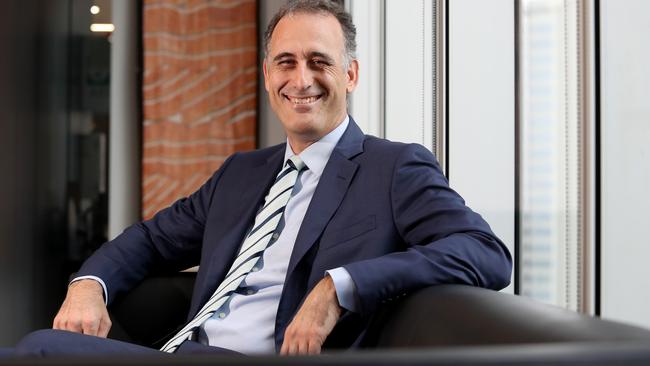Wesfarmers hits back at critics of its play for Lynas
Wesfarmers has fired back at critics of its approach to the $1.5bn play for rare-earths producer Lynas.

Wesfarmers has fired back at critics of its approach to the $1.5 billion play for rare-earths producer Lynas, defending its decision to engage directly with the Malaysian government and flagging it could drop some conditions attached to its proposal.
The Perth conglomerate has come under fire for meeting the Malaysian government to discuss a regulatory impasse that has dogged Lynas and yesterday said its talks were designed to help it better understand the licensing and regulatory issues affecting Lynas.
“Wesfarmers is disappointed with the mischaracterisation of its discussions with Malaysian government officials and rejects any inference these were inappropriate or intended to interfere with government process,” the company said.
Lynas has been in talks with the Malaysian government for months over the future of its rare-earths processing plant there, and in particular what it should do with the mildly radioactive waste that comes out of the plant.
Lynas had been pushing for an extension of its current licence, which expires in September, but some members of the Malaysian government had advocated for a shutdown of the plant if Lynas did not remove all current and future radioactive waste from Malaysia.
On Friday, Malaysian Prime Minister Mahathir Mohamad said Lynas could continue in Malaysia if it started carrying out the early stages of processing, which generate the contentious waste, in Australia. Dr Mahathir referred to “other companies willing to buy up” Lynas that had “given us a promise” they would decontaminate the rare-earths material before it arrived in Malaysia from Lynas’s mine at Mount Weld, Western Australia.
CLSA analyst Dylan Kelly accused Wesfarmers of “brazenly torpedoing” Lynas’s negotiations with the government. Matthew Ryland from Lynas shareholder Greencape Capital said Wesfarmers’ conduct “raised questions” about its corporate governance.
Wesfarmers yesterday said it had advised the Malaysian government that it did not speak for Lynas and that its proposal was subject to a number of conditions.
Wesfarmers chief Rob Scott said: “With greater clarity around licence renewal and Lynas’s plans to address these licence conditions, Wesfarmers remains open to engage with the Lynas board on our proposal, with a view to … a less conditional proposal.’’
Lynas’s problems with Malaysian authorities predate Wesfarmers’ recent meetings by years.
Lynas has attracted numerous protests in Malaysia dating to 2012. Last May’s election, which preceded Wesfarmers’ original approach to Lynas about a potential joint venture by three months, increased the power of key anti-Lynas politicians.
The new government’s review into Lynas’s licence conditions surfaced in September last year, some six months before the first meetings between Wesfarmers and the Malaysian government.
The contrast between the reception of Wesfarmers and the interactions with Lynas also point to a frayed relationship between the government and Lynas.
Lynas reportedly learned of Dr Mahathir’s comments in a video of a press conference on YouTube. Malaysia’s resources and science minister has rejected invitations to visit Lynas’s plant but Wesfarmers secured meetings with government officials, including Dr Mahathir, in a matter of days.
Late last year, Science and Environment Minister Yeo Bee Yin released an open letter to Lynas employees in which she accuses the company of failing to honour its commitments.
“The whole drama Lynas management is trying to stage (is) to protect the company bottom line by not honouring the commitment made,” Ms Yeo wrote.
Lynas yesterday said it was planning to develop early stage processing infrastructure in WA to meet Dr Mahathir’s conditions.

